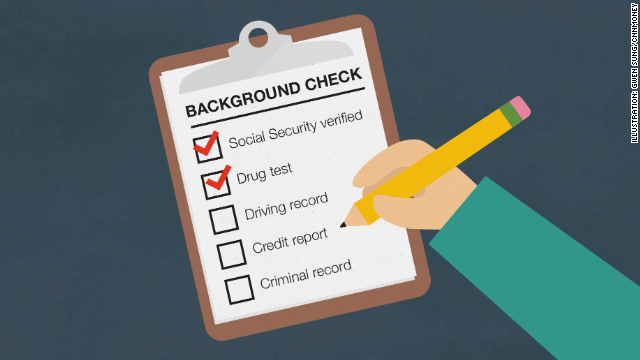5 types of background checks when applying for a job

When you apply for a job, employers may conduct a background check to see if you are fit for the job. Employers conduct this process to learn more about applicants and protect themselves. If an employee hurts others, the employer can be sued .
However , there are many laws that limit what kinds of checks an employer can do and when.
If an employer wants to conduct a background check, it should be done equally to everyone. Verification cannot be done based on race, gender, and religion. If an employer does not treat you equally, you can file a lawsuit within 180 days of the alleged violation with the Illinois Department of Human Rights. You need to fill out a labor complaint information form first.
5 background checks an employer could use:
- Reference check
- drug test
- Verification of social networks and the internet
- Criminal background check
- credit check
Reference check
Employers often conduct reference checks to make sure the information on your resume or application is correct. For example, they may ask your former employer about the dates you were hired.
drug test
Some areas of work may require drug testing, such as those that require driving or aviation. Illinois does not encourage or prohibit the use of drug tests, but if you are in a drug rehabilitation program, employers may request this test. However, they cannot do it just because you belong to a certain group, such as race or religion. Employers may require you to take a drug and alcohol test after the job offer. You do not have to pay for this test.
Verification of social networks and the internet
Employers can view your public social media posts to hear from you. However, they cannot request your password or any other information related to your account.
Criminal background check
Employers cannot ask you about your criminal record. They cannot use this information for hiring. Some employers are prevented from asking if you have been convicted of a crime.
Federal and state law also prevent employers from asking applicants about criminal records that have been expunged, sealed, or subject to executive clemency or pardon.
However, there are exceptions. If you are applying for the following jobs, the employer may review your criminal conviction history , even if it has been closed:
- armed security guards,
- carnival workers
- child care workers,
- health workers,
- local government workers,
- locksmiths,
- private detectives, and
- School workers.
credit check
Employers cannot make decisions based on your credit. The following actions are not allowed:
- Ask about your credit history or report;
- Request your credit report from an agency;
- Refusing to hire or recruit you because of your credit history or report, or
- Discriminate against you because you have filed for bankruptcy.
There are also exceptions. Employers in Illinois can check your credit if:
- The work involves unsupervised access to cash or assets valued at $2,500 or more;
- It is a management position;
- The work involves secret treaties or confidential information; either
- Your credit history is a Bona Fide Occupational Qualification (BFOQ). This means that you must have a good credit history to apply for the job. If you want to work in a bank, the employer can ask about your credit
What can I do if my job application was denied for a background check?
If the job denial is as a result of a reference check, there is not much you can do.
If the reason was because your social media posts are inappropriate, you cannot sue.
If the reason is a positive drug test, the employer may not be responsible but it is not okay to request the test because of your race or religion. If the positive test result is due to a prescription drug you are taking, you can sue for disability discrimination.
No employer can ask about your arrest history, but some may check your conviction history. To be rejected, your criminal record must be related to the job applied for . If an employer breaks the law, you can file your complaint with the Department of Labor.
Employers cannot use your credit to make decisions. However, good credit is required, they can check your credit history. You can take action in court if there is a violation of the law.
Can I refuse to complete a background check?
Some reference checks are fine. You may not want to refuse these.
Social media checks are allowed as long as your employer does not ask for your password.
You may refuse to take a drug test if you believe it was requested because of your race, religion, or similar characteristics. You can object to this test if it violates your privacy. You can also object if the drug use is not relevant.
If the employer requests your arrest history, you can always refuse. If the private employer has fifteen or more employees, they cannot ask about your conviction history. In Cook County, most private employers cannot ask about your conviction history. If the employer has permission to ask these questions, but asks them before the job interview for the conditional offer of employment, you can also refuse.
You can refuse to answer questions about your credit. However, there are exceptions where good credit is necessary for employment.






